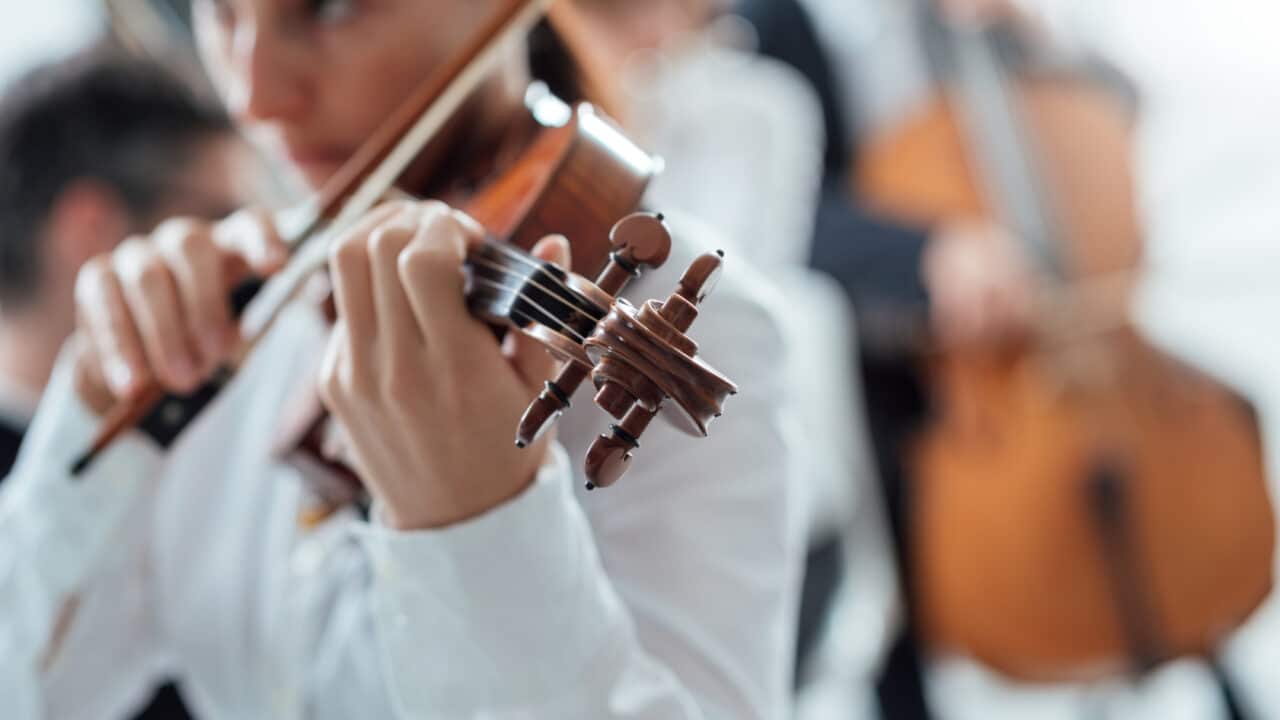
Guide to Italian Music
Italy, the land of Colosseum, gondola rides, and delicious food. It also boasts an equally rich and vibrant musical heritage. Italian music has captivated audiences worldwide for centuries. Italy is renowned for its rich cultural tapestry. From literature to music, Italy has an indelible mark on the global stage. Soaring melodies of classical compositions and vibrant rhythms of contemporary tunes. All part of how Italian music captivates audiences worldwide with its emotive power and timeless appeal. Delve into the heart of Italian music, exploring its diverse facets with our guide to Italian music.
Italian Music: A Journey Through Sound and Culture
Explore the diverse landscape of Italian music. Uncover the history classical Italian music and exciting musical events. Whether you are a seasoned music aficionado or beginning your musical journey, discover more with guide to Italian music.
Classical Italian Music
Italian music is a tapestry woven from diverse threads, each contributing to the nation’s unique sonic identity. At its heart lies the legacy of classical Italian music, where opera reigns supreme. Renowned composers such as Giuseppe Verdi and Giacomo Puccini have gifted the world with timeless masterpieces. “La Traviata” and “Madama Butterfly,” solidified opera’s place as a cornerstone of Italian culture.
Historical Roots
Classical Italian music traces its origins back to the Renaissance and Baroque periods. When Italy served as the epicentre of musical innovation. Influential composers like Claudio Monteverdi and Antonio Vivaldi pioneered new musical forms and techniques. They were responsible for laying the groundwork for centuries of musical evolution.
Classical Italian music is where drama and melody intertwine to create an immersive experience. Opera, the crown jewel of this genre, takes centre stage. Arias, expressive solo moments, showcase the vocal prowess of singers, while recitatives, sung dialogue sections, move the story forward. Elaborate costumes, dramatic sets, and powerful acting further enhance the operatic experience.
The operatic tradition, born in Italy during the late Renaissance, became a defining feature of classical Italian music. During this period, composers such as Giuseppe Verdi and Giacomo Puccini crafted timeless masterpieces. Names that are still relevant today.
Beyond opera, other classical forms like concertos and symphonies showcase the virtuosity of Italian composers and musicians. Renowned figures such as Antonio Vivaldi and Gioachino Rossini have left an indelible mark on the musical landscape. Known for concertos and operas such as “The Four Seasons” and “The Barber of Seville” they continue to captivate audiences.
Opera houses such as Teatro alla Scala in Milan, Teatro dell’Opera di Roma and Teatro di San Carlo in Naples hold historical and artistic weight. Attending a live performance is a unique experience.
Notable Composers
Classical Italian music is adorned with the names of visionary composers whose works have stood the test of time. From the intricate polyphony of Giovanni Pierluigi da Palestrina to the expressive lyricism of Gioachino Rossini. Each composer brought a distinctive voice to the Italian musical landscape. The symphonic compositions of composers like Arcangelo Corelli and the sacred choral works of Palestrina exemplify the diverse range of styles and genres that flourished during this period.
Sign up for our offers
Exclusive discounts on your course with Cactus directly on your inbox!
Beyond Classical Music
Beyond the operatic stage, a vibrant tapestry of traditional and popular music thrives. There are many regional folk styles such as soulful Canzone Napoletana (Neapolitan Song) with its characteristic bel canto vocal. Or the introspective Cantautori (singer-songwriter) tradition. It’s best known for its poetic lyrics and social commentary, offering a glimpse into the heart of Italian culture.
Contemporary Italian artists draw inspiration from international genres such as pop, rock, and electronic music. Infusing their creations with a distinct Italian flavour. Artists such as Eros Ramazzotti, Laura Pausini, and Måneskin have achieved international acclaim. They showcase the diversity and dynamism of the modern Italian music scene. Additionally, Italy has contributed significantly to electronic music. Genres such as Italo disco and Italo house, with their energetic rhythms played a part. Italian Jazz, has also been an important genre as it’s known for its improvisation and soulful expression.
Italian Music Events
Italy hosts a plethora of annual music festivals that pay homage to the country’s rich musical heritage. From the grandeur of the Verona Arena Opera Festival to the intimate charm of the Ravello Festival on the Amalfi Coast. These events offer a vibrant tapestry of classical, folk, and contemporary Italian music.
Major Italian Music Festivals
- Puccini Festival, Tuscany – celebration of operatic legacy of Giacomo Puccini
- Umbria Jazz Festival, Perugia – electrifying performances by jazz luminaries from Italy and beyond
- Sanremo Festival, Sanremo – a televised song contest that has launched the careers of countless Italian stars including for Eurovision
These festivals showcase the immense talent of Italian musicians. It is also a platform for international artists to collaborate and share their passion for music.
Italian Music Events Worldwide
Beyond its borders, Italian music resonates in concert halls and cultural venues across the globe. From New York to Tokyo, audiences flock to Italian music events that celebrate the country’s musical traditions. Events such as “Italianissimo!”, “Italy in Jazz” and “Viva Italia!” bring the essence of Italian music. A showcase of diverse array of Italian music, from classical symphonies to contemporary pop.
These events serve as ambassadors of Italian music and fostering cultural exchange.

Guide to Italian Music Terms
Musical Lexicon
Italian music is not only renowned for its captivating melodies and harmonies but also for its rich lexicon of musical terms. These terms are rooted in centuries of musical tradition. Providing a nuanced language for musicians to express dynamics, tempo, and other essential elements of musical performance.
Key Terminology
Demystify the musical score and unlock a deeper appreciation for Italian music by understanding some key Italian music terms:
- Tempo: This term refers to the speed of the music. Common tempo markings include:
- Largo: Very slow and broad
- Lento: Slow
- Moderato: Moderate
- Allegro: Fast
- Presto: Very fast
- Dynamics: These terms indicate the volume of the music. Commonly used markings include:
- Piano: Soft
- Forte: Loud
- Pianissimo: Very soft
- Fortissimo: Very loud
- Crescendo: Gradually getting louder
- Diminuendo: Gradually getting softer
- Articulation: These symbols specify how notes are played or sung. Examples include:
- Staccato: Short and detached notes
- Legato: Smoothly connected notes
- Tenuto: Hold the note for its full value
Understanding these basic terms is a great tool to better interpret the musical notation and appreciate the nuances of Italian music. Music is a universal language, but learning a few key Italian terms can significantly enrich an experience.
Learning Italian & Italian Music
Italian music is fascinating. Each genre offers a unique window into the soul of Italy. Italy’s diverse musical offers everyone something to ignite their passion. So, delve deeper into the world of Italian music with this guide to Italian music. Attend a local concert, explore online resources, or simply listen with an open mind. You might just discover your new favourite artist or genre.
For a truly immersive experience, consider combining it with other artistic expressions. Italian films or series often feature iconic music and showcase the cultural significance of music in Italian life.
Music transcends language barriers. Even if you don’t understand every word, allow yourself to be moved by the emotions and energy conveyed through the music. Alternatively, you can start learning Italian with Cactus. We offer online Italian courses, private classes and group courses across the UK. Including Italian courses in Brighton, Cambridge, Edinburgh, Leeds, London and Manchester. Start learning Italian – free trial!

 French
French German
German Italian
Italian Spanish
Spanish Arabic
Arabic Cantonese
Cantonese Czech
Czech Croatian
Croatian Danish
Danish Dutch
Dutch English
English Greek
Greek Hebrew
Hebrew Hindi
Hindi Japanese
Japanese Korean
Korean Norwegian
Norwegian Polish
Polish Portuguese
Portuguese Russian
Russian Swedish
Swedish Thai
Thai Turkish
Turkish Ukrainian
Ukrainian